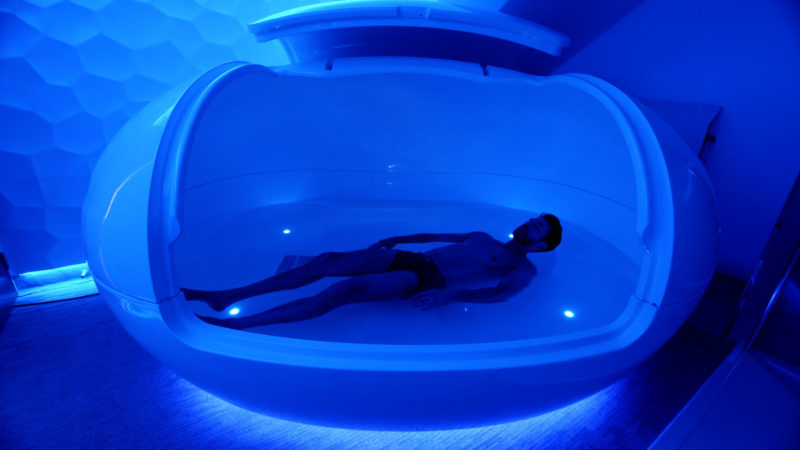A unique therapy that involves no speaking at all – that’s right, no speaking at all – has gotten more popular this year than ever before. Perhaps this is due to the unprecedented stressors that 2020 has thrown our way, or perhaps it is because people are looking for alternative and more natural ways to heal their bodies. While Floatation Therapy may sound like pseudo-health, New Age mumbo jumbo, this incredible type of therapy is a scientific creation.
In Floatation Therapy, a “sensory deprivation tank” is used to remove all external stimulation and distraction to the patient. The patient is then able to experience what they call Restricted Environmental Stimulation Therapy, more commonly known as REST.
Here is a little history on the origins of this fascinating type of therapy. In 1954, American physician and neuroscientist John C. Lilly invented the first floating tank so that he could study consciousness more thoroughly by essentially cutting off all external stimuli. The patient enters a small, dark pod wearing no clothing and spends an hour floating in a foot of highly concentrated Epsom salt water. The patient has no gravitational feel and no ability to hear, smell, or see anything around them.
Unfortunately, in the 1960s, Dr. Lilly decided to take his experimentation a little too far by distributing LSD and Ketamine to those who would then use the floatation rooms. This was a setback for about a decade, until in 1972 the health benefits of Floatation Therapy began to become apparent, and more tanks were made for purchase around the world. Even though its initial conception was here in the United States, it was not received very well at first. However, its popularity exploded all over Europe, before making its way back to America. Today there are over 500 Floatation Centers around the world, with more than 150 in the USA alone. An average of two to three new Floatation Centers are opening every month.
Are you considering a visit to your local Floatation Center for some relaxing therapy? According to studies and medical journals around the globe, Floatation Therapy can help with many mental and psychological ailments such as stress, anxiety, depression, and insomnia, while simultaneously increasing mental clarity and creativity. Many people seek out Floatation Therapy simply for the physical health benefits that they receive sometimes after just one session. Scientific experiments and randomized studies have shown that people report a lessening of symptoms such as chronic fatigue, chronic pain due to arthritis, fibromyalgia, and tendonitis. Some additional health benefits of Floatation Therapy include overall inflammation decreasing, immune system function increasing, and magnesium absorption increasing, as well as a more acute awareness of one’s musculoskeletal system and physical body. Side effects, especially for first-time users, can include nausea. I am looking forward to trying out Floatation Therapy later this month and am excited to see what improvements I notice in my own mind and body after the experience.





